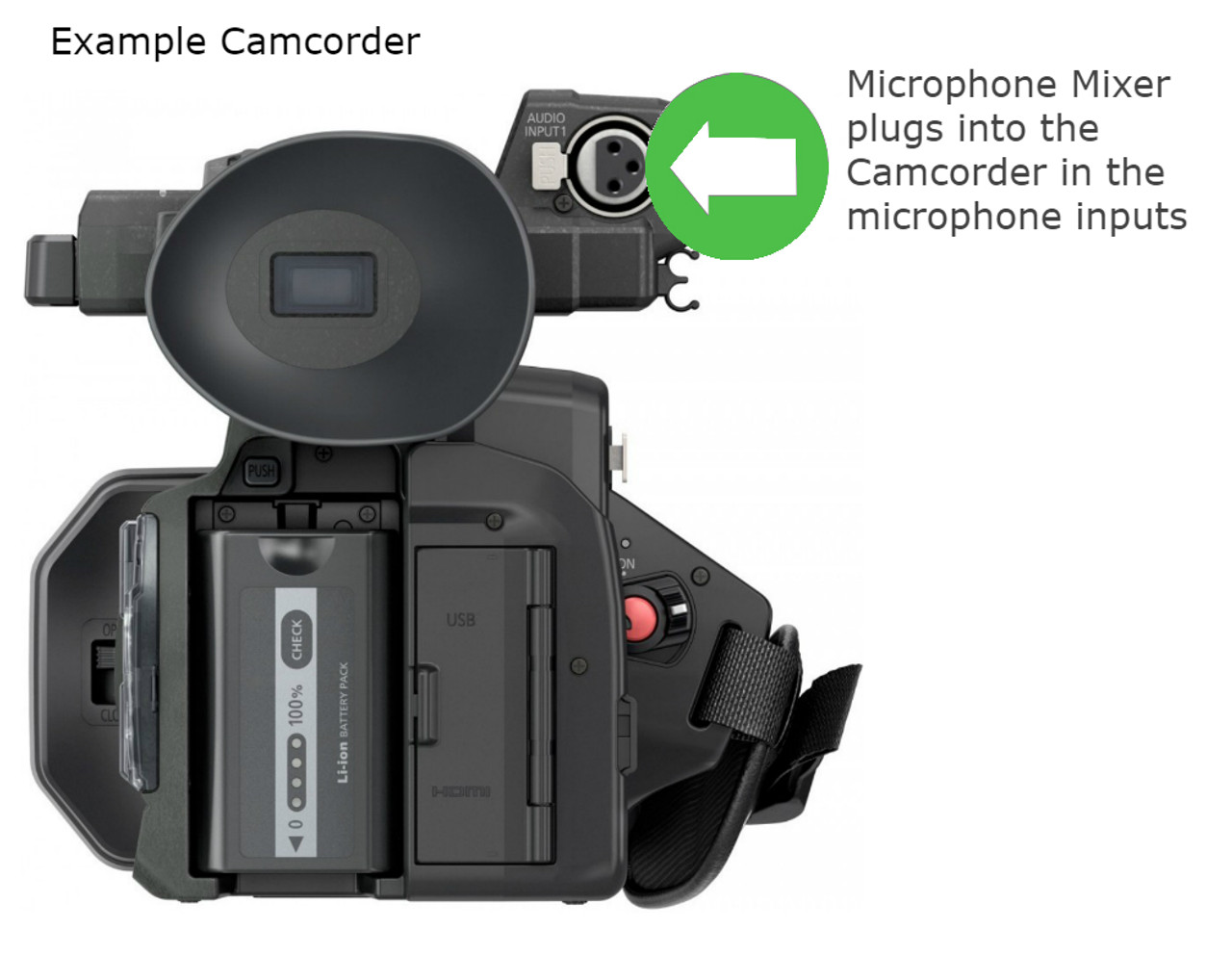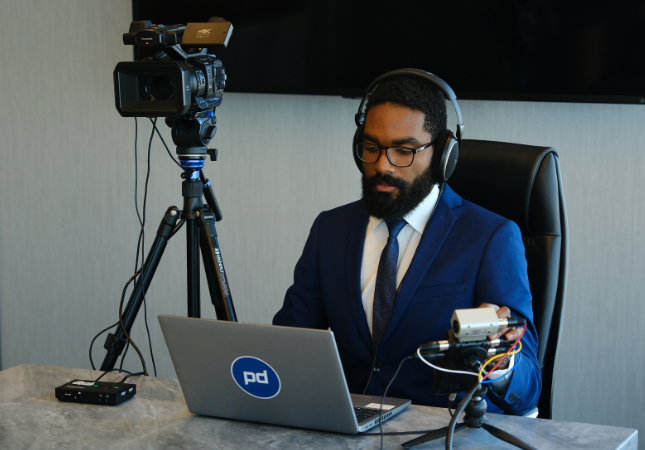The Value of Legal Video Depositions in Modern Legal Services: What You Must Know
Lawful video depositions have become essential in today's lawful landscape. They supply a multidimensional sight of witness testimonies that traditional transcripts merely can not match. By capturing both verbal and non-verbal interaction, these depositions improve the overall understanding of a witness's trustworthiness. The performance of video depositions pivots on different elements, consisting of compliance with legal standards and ideal methods. Discovering these aspects reveals their real importance in contemporary lawful services
What Are Legal Video Clip Depositions?
Lawful video depositions work as an important tool in the litigation process. They involve tape-recording witness statements in a video layout, capturing both verbal and non-verbal interaction. This method allows attorneys to document the attitude, expressions, and responses of witnesses, giving a richer context for the testimony. Generally carried out in a regulated atmosphere, these depositions are led by lawyers that ask concerns while a court press reporter documents the dialogue. The resulting video can be important for trial preparation, as it allows lawyers to evaluate the trustworthiness of witnesses and fine-tune their techniques. Furthermore, legal video depositions can be utilized in numerous lawful contexts, varying from civil conflicts to criminal instances. The auditory and visual components of video clip depositions improve the presentation of proof, making it a crucial part in the contemporary legal landscape. Overall, they add significantly to the efficiency and performance of legal proceedings.

Advantages of Video Clip Depositions Over Traditional Techniques
Video depositions provide countless advantages contrasted to typical methods of taking witness statements. One substantial benefit is the capability to record both audio and visual aspects, giving a more complete document of the witness's declarations. This dual format improves quality and permits legal professionals to reference certain nuances throughout test prep work. Additionally, video depositions help with remote involvement, making it less complicated for witnesses that might be unavailable for in-person appearances due to geographical constraints or health issues.Moreover, video depositions can speed up the total deposition procedure, reducing the moment and prices connected with traveling and logistics. They also boost accessibility, as recorded depositions can be conveniently shared amongst legal groups and referenced at any moment. This comfort adds to better case monitoring and prep work. In general, video depositions represent a modern, reliable strategy to collecting witness statements, lining up with the developing needs of the lawful career.
The Duty of Body Language and Tone in Testimonies

In legal video clip depositions, body language and tone play vital roles in communicating a witness's integrity and credibility. Nonverbal cues can supply insights right into a witness's mood, influencing how their statement is perceived. Comprehending the impact of these aspects is vital for lawyers and jurors alike when reviewing the integrity of a statement.
Nonverbal Interaction Insights
While verbal interaction is typically emphasized in legal testaments, nonverbal cues such as body movement and tone play an important duty in conveying integrity and feeling. Observers of depositions may keep in mind that a witness's posture, gestures, and face expressions can greatly influence understandings of integrity. For instance, constant eye get in touch with might signify confidence, while preventing look can recommend deceit or discomfort. The tone of voice-- its pace, pitch, and quantity-- can pass on sensations of sincerity or uncertainty. Attorneys need to be in harmony with these nonverbal signals, as they usually give critical context that complements talked words. Recognizing these nuances can enhance the effectiveness of depositions and affect the end result of lawful procedures.
Emotional Tone Effect
The emotional tone shared throughout lawful testaments considerably affects how a witness is regarded. Body movement, vocal inflections, and faces play essential functions in shaping the story of a statement. A witness displaying self-confidence with stable eye contact and a tranquil tone can impart a sense of integrity and interaction. On the other hand, indicators of stress and anxiety, such as fidgeting or a shaky voice, might result in uncertainty regarding their account. The nuances of emotional expression can affect the interpretation of realities, making it vital for lawyers to recognize these signs. In video depositions, the aesthetic and auditory elements incorporate, highlighting the significance of psychological tone in conveying sincerity and reliability within the legal process.
Credibility and Dependability
A vital consider establishing trustworthiness and reliability during statements hinges on the witness's body language and tone of voice. Onlookers often count on non-verbal signs-- such as eye contact, pose, and motions-- to analyze a witness's sincerity. A witness that keeps eye call and displays open body language might be perceived as more reliable and honest than one who avoids eye contact or appears shut off. In addition, intonation plays a crucial duty; a stable, tranquil tone can reinforce the trustworthiness of the testimony, while fluctuations in pitch or volume might raise questions. Eventually, the combination of body movement and vocal tone significantly influences just how a witness's declarations are obtained and analyzed in a legal context.
Ideal Practices for Performing Video Clip Depositions
Conducting video clip depositions needs careful preparation and implementation to ensure a effective and clear discussion of statement. First, it is essential to pick a peaceful, well-lit location to decrease disturbances and secure ideal video clip top quality. The devices needs to be checked in advancement, consisting of cams, microphones, and illumination, to avoid technical concerns during the deposition.Next, events involved have to review the style and treatments beforehand, seeing to it that everyone comprehends their roles. The deponent must be informed on the process, including exactly how to react clearly and concisely.Additionally, preserving a specialist behavior throughout the session is essential. This includes avoiding from speaking over one an additional and confirming that all concerns are guided suitably. Finally, it is vital to tape the deposition in a layout that permits easy playback and testimonial, maintaining the honesty of the testimony for future use.
Lawful Factors To Consider and Compliance Issues
How do legal considerations and compliance problems affect the efficiency of video depositions? Lawyers should navigate a complicated landscape of discover here guidelines, making certain that video clip depositions follow jurisdictional policies and requirements. Compliance with laws concerning privacy, consent, and recording approaches is crucial. Acquiring explicit permission from all parties entailed is needed to avoid lawful repercussions.Additionally, the admissibility of video evidence in court can pivot on conformity with procedural needs. Making sure that the devices made use of satisfies technical criteria is likewise vital, as low quality can threaten the deposition's reliability.Moreover, attorneys have to be conscious of any certain state laws that control video depositions, as these can differ considerably. Failure to attend to these considerations can not just threaten the stability of the deposition yet also impact the overall case method, ultimately influencing the customer's lawful results.
How Video Depositions Impact Jury Perception
While video clip depositions can work as effective tools in legal process, their impact on jury perception is considerable. The aesthetic and acoustic aspects of video clip recordings provide jurors with a more comprehensive understanding of witness attitude, trustworthiness, and psychological feedbacks. This multimedia approach can improve the jurors' capability to analyze the dependability of testament contrasted to traditional text-based transcripts.Moreover, video depositions allow jurors to observe body language, tone of voice, and face expressions, every one of which can influence their browse around this web-site interpretation of the witness's statements. The existence of a witness on screen can humanize them, promoting empathy and connection, which may sway jurors' viewpoints. On the other hand, a witness who shows up unreliable or evasive on video may lead to negative perceptions that influence a jury's choice. Inevitably, the vibrant nature of video clip depositions plays a crucial function in shaping how jurors interpret proof and reach their judgments.
The Future of Video Clip Depositions in Legal Method
As developments in innovation continue to improve the lawful landscape, the future of video depositions is poised for considerable development. Developments such as expert system, digital truth, and enhanced video clip conferencing tools are anticipated to improve the deposition process and boost availability. Attorneys might utilize AI-driven analytics to assess witness credibility and situation stamina more effectively.Moreover, the assimilation of online fact might allow courts to experience immersive simulations of depositions, providing much deeper context and understanding. Additionally, the pattern towards remote depositions is likely to this contact form linger, using greater versatility for attorneys and clients alike.As remote job comes to be significantly normalized, video clip depositions will likely come to be basic technique, decreasing prices and time constraints connected with conventional methods. Overall, these technical developments assure to boost the effectiveness, performance, and accessibility of video depositions in lawful practice, eventually changing just how attorneys get ready for test.
Frequently Asked Questions
Just How Much Do Lawful Video Clip Depositions Generally Price?

Can Video Depositions Be Made Use Of in Any Type Of Kind of Case?
Video clip depositions can be made use of in different kinds of instances, consisting of civil, criminal, and household law. Their adaptability enables lawyers to existing witness testimonies effectively, adjusting to the particular needs of various legal scenarios.
What Devices Is Needed for a Video Deposition?
To perform a video deposition, important tools includes a top quality electronic camera, microphone, illumination, and a dependable recording tool. Furthermore, a computer system with editing software program may be needed for post-production and formatting the final video.
The length of time Does a Regular Video Deposition Last?
A regular video deposition lasts between 2 to 4 hours, depending upon the intricacy of the case and the number of inquiries posed. Prolonged sessions might take place, but breaks are usually included for participant comfort.

Are Video Clip Depositions Admissible in Court?
Video clip depositions are usually permissible in court, given they follow lawful requirements and guidelines of evidence. Their use improves quality and maintains witness testament, assisting in the judicial process during hearings and tests. Lawful video clip depositions have actually ended up being vital in today's legal landscape. Additionally, lawful video clip depositions can be utilized in various lawful contexts, varying from civil conflicts to criminal cases. Additionally, video clip depositions assist in remote involvement, making it easier for witnesses that might be unavailable for in-person looks due to geographical restrictions or health issues.Moreover, video clip depositions can accelerate the overall deposition process, decreasing the time and prices associated with traveling and logistics. Ensuring that the tools used satisfies technical criteria is likewise essential, as inadequate high quality can threaten the deposition's reliability.Moreover, attorneys must be conscious of any particular state regulations that regulate video clip depositions, as these can vary substantially. In addition, the pattern towards remote depositions is likely to continue, offering higher adaptability for clients and attorneys alike.As remote job becomes progressively stabilized, video depositions will likely end up being basic method, reducing expenses and time restraints associated with conventional approaches.